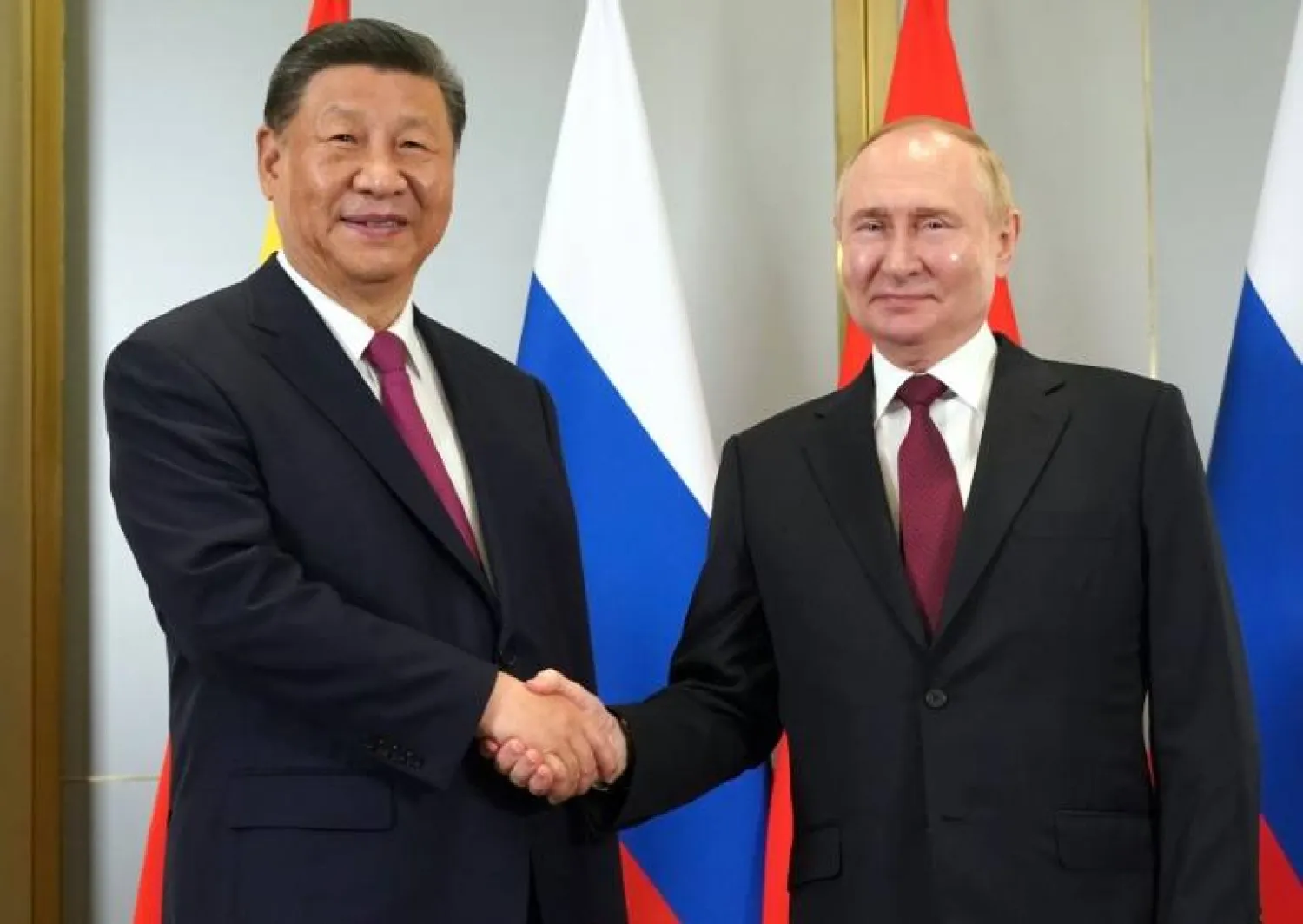The leaders of China and Russia on Thursday urged their allies and partners to resist malign external influence, advancing their shared anti-Western agenda at a regional summit in Central Asia.
Russian President Vladimir Putin and his Chinese counterpart Xi Jinping were in the Kazakh capital of Astana for a gathering of leaders from the Shanghai Cooperation Organization (SCO), a regional bloc that Moscow and Beijing see as a counterweight to US "hegemony" on the world stage.
Xi called on the countries to "resist external interference" while Putin claimed "new centers" of political and economic might were on the rise.
"We should join hands to resist external interference, firmly support each other, take care of each other's concerns... and firmly control the future and destiny of our countries and regional peace and development in our own hands," Xi told the summit.
"It is of vital importance to the world that the SCO be on the right side of history and on the side of fairness and justice," he added, AFP reported.
In a joint declaration, published by the Kremlin, the group noted "tectonic shifts in global politics" and called for the bloc to play an enhanced role in global and regional security.
"The use of force is increasing, the norms of international law are systemically being violated, geopolitical confrontation and conflicts are growing, and risks to stability in the world and the SCO region are multiplying," it stated.
"The multipolar world has become a reality," Putin said in remarks at the summit.
He also hailed the accession of Russia's close ally Belarus to the bloc, becoming its tenth member.
"The circle of states that stand for a just world order and are ready to resolutely defend their legitimate rights and protect traditional values is expanding," Putin said.
"New centers of power and economic growth are strengthening," he added.
Western-sanctioned Iran joined as a full member last year.
The SCO was founded in 2001 but has come to prominence in recent years. Alongside China, Russia and Belarus, its full members are: India, Iran, Kazakhstan, Kyrgyzstan, Uzbekistan, Pakistan and Tajikistan.
It is intended to be a platform for cooperation in competition with the West, with a focus on security and economics and Central Asia in particular, and claims to represent 40 percent of the global population and about 30 percent of its GDP.
But it is a disparate group with many internal disagreements, including territorial disputes.
Russia's invasion of Ukraine has further increased major powers' interest in Central Asia, where Moscow is seeking to maintain its traditional sway but where China now has strong ties through its flagship Belt and Road infrastructure project.
The West is also vying for influence in the strategically important region, rich in oil and gas and a crucial transport route between Asia and Europe.
Despite the tussle for influence, at the summit on Thursday, the SCO's common anti-Western agenda was on clear display.
In the final declaration, the bloc criticised the "unilateral and unrestricted build-up" of missile defence systems by unnamed countries and regional alliances -- a common complaint of both Moscow and Beijing aimed at the United States.
They also called for an "early, complete and sustainable ceasefire" in Gaza with a "comprehensive and just settlement of the Palestinian question."
Pakistan's foreign ministry on Thursday announced it would host the next summit of leaders in October.
Mumtaz Zahra Baloch, the ministry's spokesperson, said "all heads of governments of SCO member states" would be welcomed when asked if Prime Minister Narendra Modi, the leader of neighbouring rival India, would be invited.
Modi did not attend this summit, but is expected in Moscow in the coming days, his first visit to the country since Russia invaded Ukraine.









